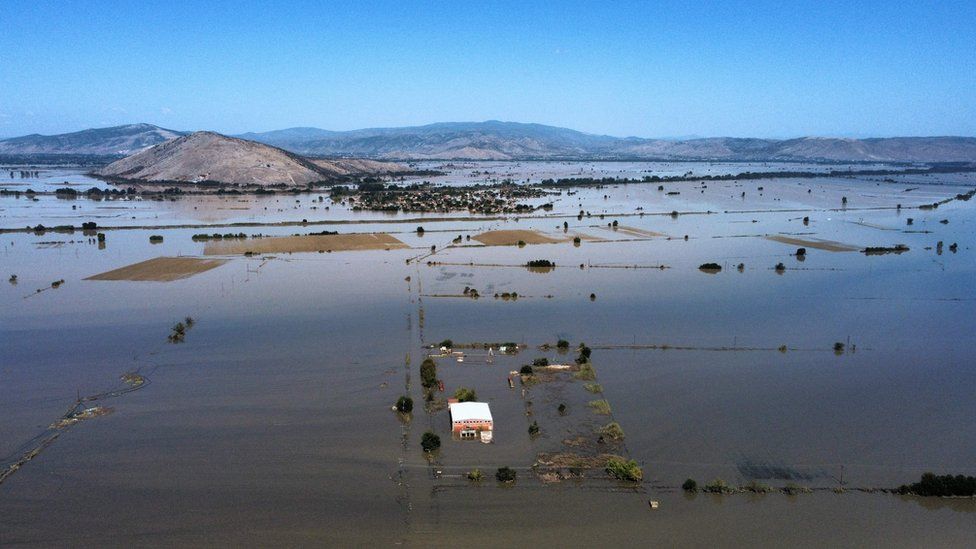-

-
-
Loading

Loading

Devastating floods caused by Storm Daniel in early September have had a severe impact on Greece. The floods have destroyed fruit trees, corn, and approximately 20% of the country's cotton crop. Over 200,000 animals and poultry have also been killed. Experts estimate that the short-term effects of the floods could cost the Greek economy up to €5 billion ($5.3 billion; £4.3 billion). One of the hardest hit areas is the Thessaly plain in central Greece, known as one of the country's main agricultural regions. There are concerns about the impact on food production in this area. Many houses in the farming village of Vlochos were almost completely submerged in the floods, resulting in the loss of possessions and displacement of families. Authorities have not provided sufficient aid, leaving families to rely on volunteers for food and water. There is also concern about health risks caused by contaminated water and the rotting carcasses of animals left behind by the floods. Greece's Prime Minister, Kyriakos Mitsotakis, promised immediate help for the victims, but many people feel that it is inadequate. Thanassis Thodos, a farmer in the nearby village of Lefki, has lost half of his walnut orchard and experienced damage to equipment. He worries about whether the state will be able to compensate for the losses. Thessaly plays a crucial role in Greek agriculture, particularly for cotton, and the restoration of orchards and herds will take time. The flooding has not only affected crops but also infrastructure, including housing, roads, schools, and healthcare facilities. Some fear that the damage will lead to a mass migration from rural areas to cities. Experts estimate that if this worst-case scenario occurs, the direct immediate cost to the Greek economy could be around €4 to €5 billion, with triple that amount as the long-term cost. The damage to crops and infrastructure has raised concerns about rising prices. Rizos Maroudas, head of the union of agricultural associations in Larissa, calls for government action to prevent profiteering. The floods have left many farmers uncertain about their future in agriculture, as contamination and destruction pose significant challenges to rebuilding. The extensive pollution of water with oil and chemicals adds to these concerns.